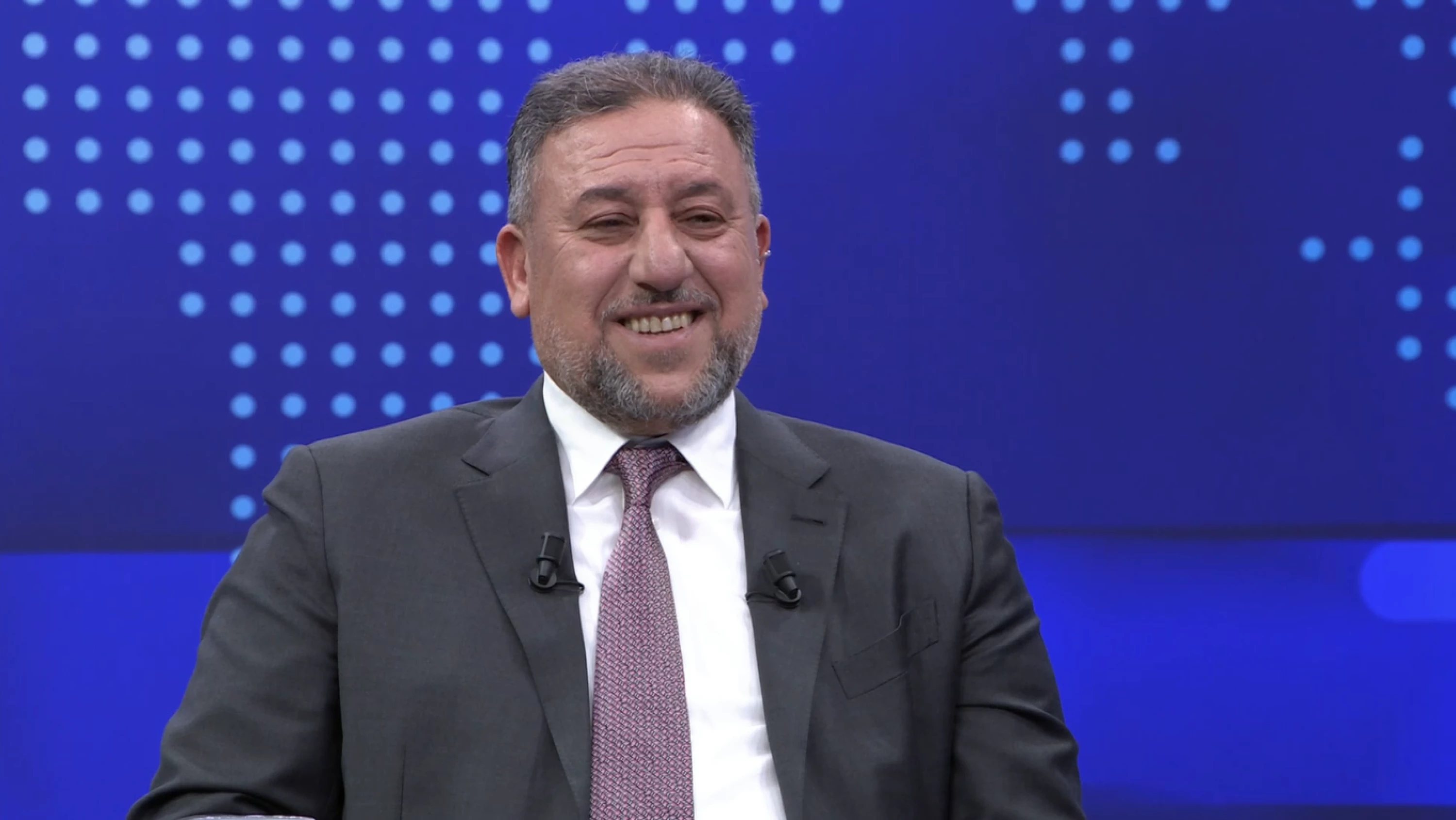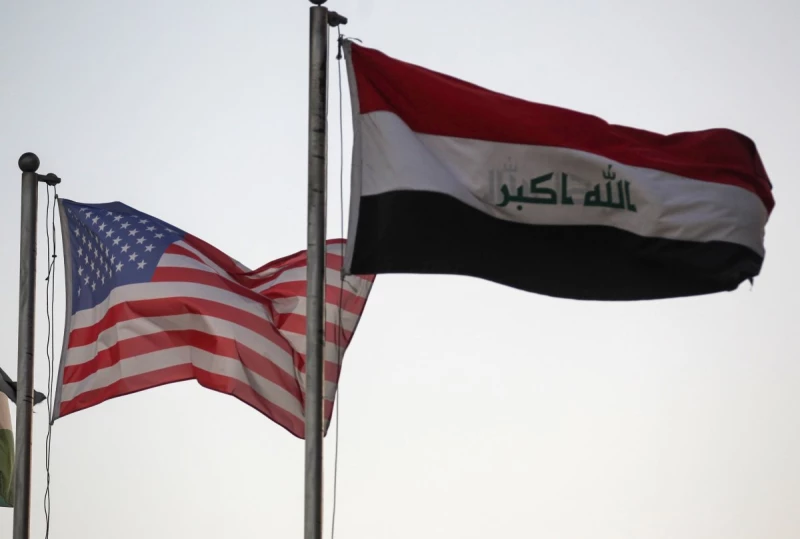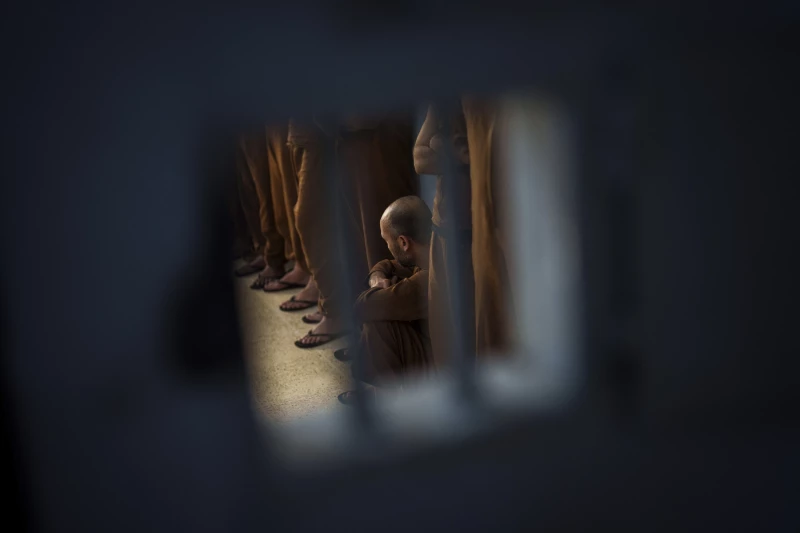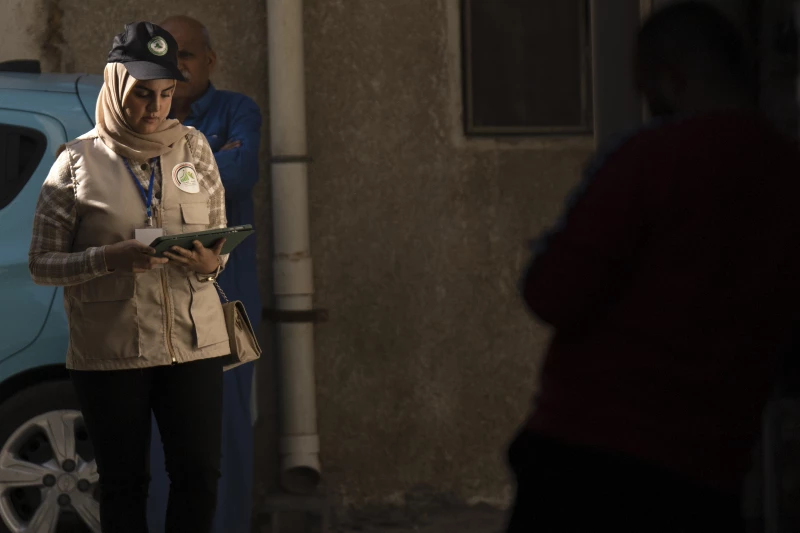ERBIL, Kurdistan Region of Iraq – Khamis al-Khanjar, head of Iraq’s Sunni Sovereignty Alliance, told the New Region on Friday that no government can be formed without the participation of Erbil, accusing militias of destabilizing the country and criticizing the selective application of the constitution.
In an interview, Khanjar said that Iraq faces three major problems: uncontrolled weapons, militias, and the election law. These problems require “brave and serious solutions,” he stressed, explaining his alliance’s strategy in Iraq’s parliamentary vote, held on November 11.
“We entered with three political fronts: the Arab Alliance in Kirkuk, the Sovereignty Alliance, and the Arab Project, and we won 14 seats,” Khanjar said. “Our political weight is large, and we received half a million votes.”
Sunni environment ‘not respected’
Khanjar said the Sunni political environment in Iraq is under pressure and not respected by some political partners.
“Our popular support does not match the number of seats we won, as the law determines these results,” he said. “The elections took place under good security conditions, and we plan to cooperate with other political forces whose programs align with ours.”
He explained that Sunni political activity faces major obstacles. “We have a problem; there is an election environment for the Shiites in which we are not welcome,” Khanjar said. “For example, we opened an office in Basra, where Sunnis make up 20 percent of the population, and it was burned. This shows that the Sunni electoral environment is not respected.”
Khanjar accused some groups of using state institutions, armed factions, and political pressure against Sunni voters. “They use militias and state bodies to take a share of our provinces. This is the confiscation of our political will,” he said.
He added that Sunnis won 76 parliamentary seats this time, including five with Shiite blocs, “a number far below our rightful share of 94 seats in 2010. Pressure from militias on Sunni towns reduced our representation.”
Partnership with KDP
Khanjar spoke highly of the partnership between his alliance and the Kurdistan Democratic Party (KDP), as well as of President Masoud Barzani’s leadership.
“President Barzani is an opportunity and a role model for Iraq. No political leader has his courage or nobility,” Khanjar said. “His recent speech at the American University Forum [MEPS Forum] provided a roadmap for saving the country and spreading justice.”
He added that the Sovereignty Alliance and the Kurds share a vision of a “fair state and institutions.” “We consider Barzani a constant ally, and the KDP’s leadership acts in the interest of all Iraqis and of national stability,” he said.
Militias, uncontrolled weapons
The Sunni leader called for decisive action against militias and illegal weapons. “The problems of uncontrolled arms, militias, and the election law need brave solutions to strengthen the state’s security, political, and military institutions,” Khanjar said. “We are working with the KDP toward that goal.”
He added that militias continue to move freely in Baghdad and other provinces. “I oppose these armed groups and reject Iraq’s dependency on any foreign power. We understand the pressures that exist, but we must be strong.”
“We cannot build a strong economy without justice while some groups continue violating the rights of others,” Khanjar stressed.
Respect for Kurdistan
Asked about Sunni figures who criticized the Kurdistan Region or President Barzani, Khanjar said he rejected any such remarks.
“Kurdistan has stood with the Arab Sunnis in our most difficult times,” he said. “I personally apologize to the people of Kurdistan for any offensive comments made by some Sunni leaders.”
He recalled the crisis when displaced Sunnis were prevented from entering Baghdad during the war against the Islamic State (ISIS). “We will never forget when children died and families were humiliated,” Khanjar said. “President Barzani ordered 100,000 people to be relocated to Kurdistan. We will always remember that.”
He added that those who once spoke against Kurdistan “now want to rebuild ties and explain that their previous comments were not meant to offend.”
‘I feel peace in Erbil’
Khanjar described Erbil as a place of safety and progress. “I feel peace and comfort in Erbil. When I’m there, I move freely without guards. I feel I’m among my people,” he said.
“There is a real renaissance in Kurdistan. Some politicians elsewhere envy that success because they failed to achieve similar progress,” he added.
Commenting on the Runaki round-the-clock electricity project in Kurdistan, Khanjar said ending the use of private generators was “a major step forward that reduced pollution and created stability for citizens.”
Selective constitution application
Discussing Iraq’s broader political process, Khanjar said the post-2003 system of governance was meant to distribute rights among communities, but it has failed due to misuse.
“The quota system was supposed to protect all groups,” he said. “The problem is not in the structure, but in how we manage the government; it should be based on justice, partnership, and consensus.”
“There is a constitution,” he added, “but it is violated repeatedly. Applying it according to political interests is unacceptable.”
Khanjar recalled the 2010 elections, when Ayad Allawi’s al-Iraqiya List won the most seats but was prevented from forming a government. “It was almost a coup,” he said. “Since then, we’ve lived under the curse of denying the true winner.”
He questioned the failure to create the Federation Council, saying, “After all these years, how is it possible that no one has been able to establish it?”
Militias in Iraq
Khanjar warned that Iraq’s institutional structure remains incomplete. “We must apply the constitution fairly, ensure real participation, and balance all components,” he said. “Weapons must be in the hands of the state only. Militias are wrecking Iraq and bombing Erbil.”
He added that when his alliance joined a cross-sectarian and cross-ethnic coalition, “we were attacked with grenades and drones flew over us.”
Regarding the pending Oil and Gas Law, Khanjar stated that the legislation would benefit both the Kurdistan Region and southern Iraq. “If passed, it will serve citizens in both Erbil and Basra,” he said. “But some Kurdish parties defend others’ rights while neglecting their own people.”
Cutting salaries in Kurdistan Region ‘unacceptable’
Regarding the salaries of public employees in the Kurdistan Region, Khanjar criticized the federal government’s decisions.
“Cutting people’s salaries because of disputes between Baghdad and Erbil is unacceptable,” he said. “It makes citizens feel alienated and discriminated against. It damages social unity.”
He added that some politicians “tried to weaken Kurdistan by attacking the livelihoods of its people,” but emphasized that “no government can be formed without Erbil and Barzani. Everyone turns to Erbil because they know the key lies there.”



 Facebook
Facebook
 LinkedIn
LinkedIn
 Telegram
Telegram
 X
X


